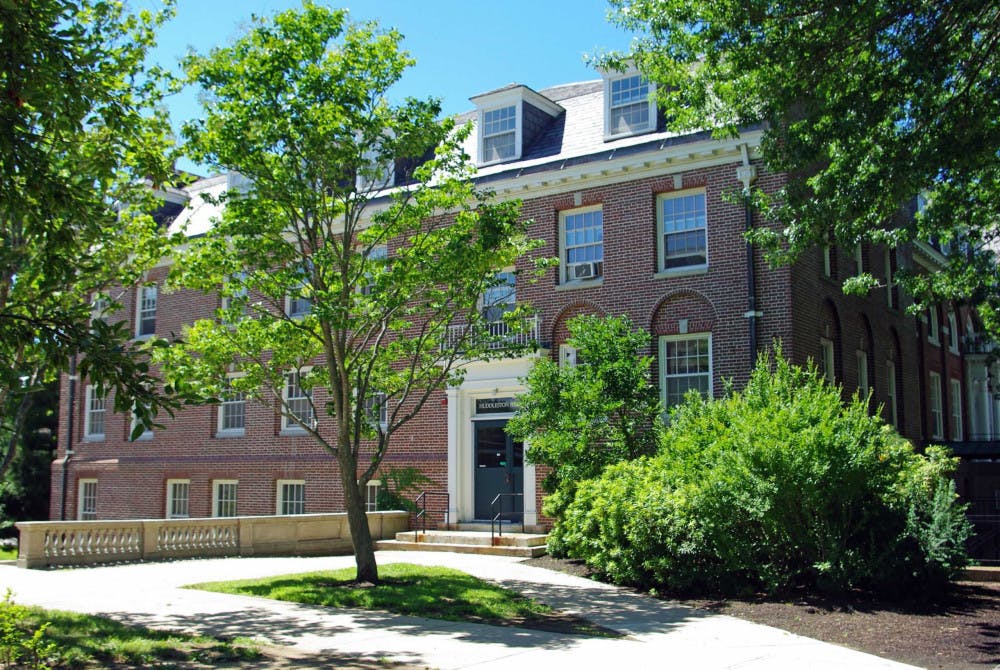Throughout the community of the University of New Hampshire (UNH), a letter has circulated from over 200 members of faculty and staff frustrated and concerned over the university’s lack of communication regarding the reopening plan.
The signatories included Molly Campbell, the president of UNH Lecturers United, the subsidiary of the American Association of University Professors (AAUP), the union that represents university faculty and staff. Numerous tenured professors, untenured lecturers and university graduate faculty were also .
The letter outlines faculty concerns on the reopening plan outlined by University of New Hampshire President James W. Dean Jr. Despite the University's effort in order to safely reopen for the fall 2020 semester, one of the biggest concerns being the lack of information provided to staff.
“Still, we are deeply troubled by the lack of information, sometimes even contradictory information, we have been receiving about everything from population density to PPEs,” the letter said. “We write to express concern about UNH’s response, with multiple considerations in mind.”
The university has committed to numerous changes in operation in order to accommodate on-campus living, such as reduced dorm capacity, enhanced cleaning, limits on gatherings and the use of face masks.
Despite these changes, faculty feel increasingly unsafe returning to campus. Siobhan Senier, chair of the Department of Women’s and Gender Studies Department, outlined the original draft of the letter. Though she is appreciative of the university’s efforts, she is concerned that should restrictions relax, the coronavirus (COVID-19) will spread across campus.
“I do believe that the University is working hard on things like cleaning the buildings, putting distancing protocols in place, and stocking up on PPEs. But everything we are seeing in the news suggests that, when you relax restrictions, you see another spike. Social distancing seems especially difficult for young people, and universities obviously bring thousands of young people into close proximity.”
It is increasingly becoming more apparent that young people are refusing to follow social distancing guidelines, at least in Durham, NH. In a report by The Union Leader on May 27th, Durham Police reported an increasing number of students living off campus refuse to follow rules regarding social distancing and self-quarantining.
Though landlords and police are attempting to work with students, neither party has the authority to enforce quarantining rules, unlike the Department of Health and Human Services (DHHS). The town of Durham also has no authority to enforce face mask wearing or social distancing, as the authority can only come from the state.
Though young people, on average, feel they have less risk in contracting the virus, the faculty are becoming increasingly worried.
The university has committed to providing reasonable accommodations to staff as a result of COVID-19 under the Americans with Disabilities Act (ADA).
Though the university has made this commitment, many are concerned their accommodations will not be approved.
In an email with Catherine Morran, the lead negotiator with UNH Lecturers United, she expressed concern with the merit of UNH’s commitment to faculty accommodations.
“Individual members of the faculty don’t have concrete answers about whether they will be teaching remotely or face to face. Faculty who have requested accommodations do not know if those will be approved or not, or what the accommodations will be. It is now six weeks before the first students return to campus, and faculty do not have a clear indication of whether we need to design classes for a real or virtual classroom. I am absolutely certain that the faculty can teach outstanding classes in the fall — but we do this best when we have the ability to exercise our judgement on how best to deliver our course content while also managing risks to our health and our families.”
Faculty have had little input on the original reopening plan announced by President Dean. Some colleges have begun to work on their own version of a blended format.
Michelle Dillion, Dean of the College of Liberal Arts (COLA), has begun to work with faculty within the college in order to establish their track for a safe reopening.
“Given the pressure on classroom space (as a result of the reduced capacity in classrooms due to physical distancing guidelines), we have made the decision in the college that all of our lecture courses with a 70 or higher capacity will be online/remote synchronous (with asynchronous recording accessible.)”
Though the university and respective colleges are working to ease faculty concerns, one thing remains clear. Faculty have had little say in decision making in regards to the reopening plan.
“We are asking you to let us do our jobs. We know our own situations; we know how we can deliver our content to our own students, in the most appropriate modality for this unfortunate context. Without that decision-making power, many faculty are frustrated, anxious, and angry. We want to teach our students, and teach them well. Trust us enough to do that,” the letter said.
Faculty are feeling increasingly ignored by the UNH administration and the University System of New Hampshire (USNH) Board of Trustees. The reopening protocols have been determined by administration with little input from staff, those at most risk from contracting COVID-19 from students.
The original signatories of the submitted letter will remain anonymous in fear of retaliation from the UNH administration.
The university has yet to respond to comment on the content of the letter.











